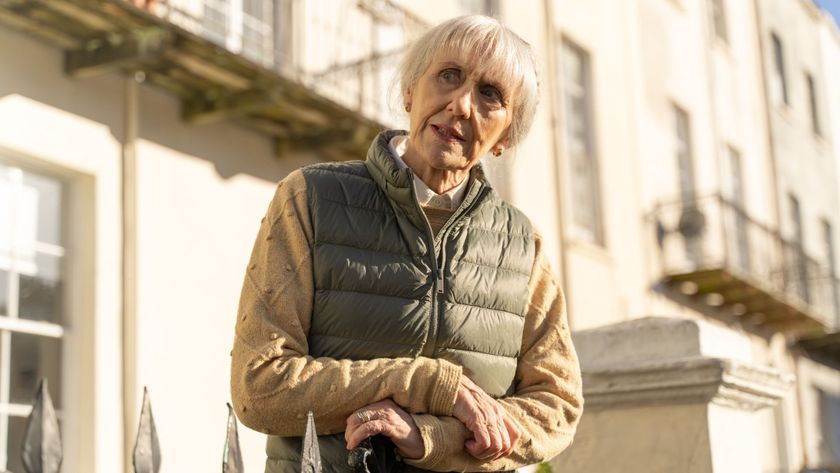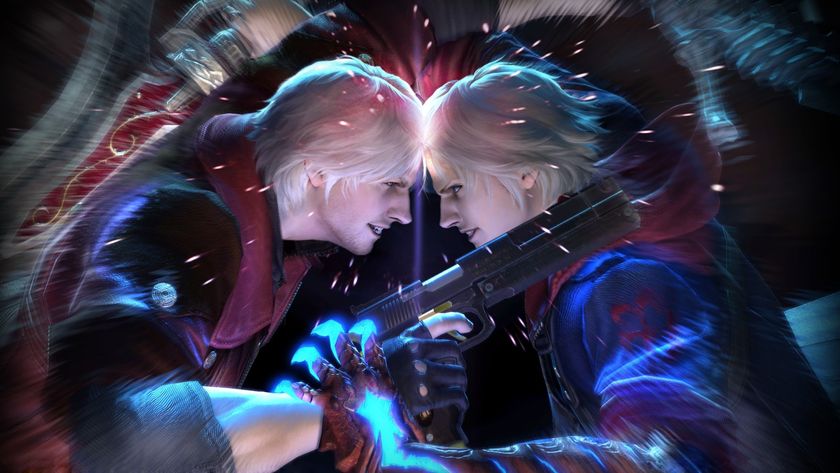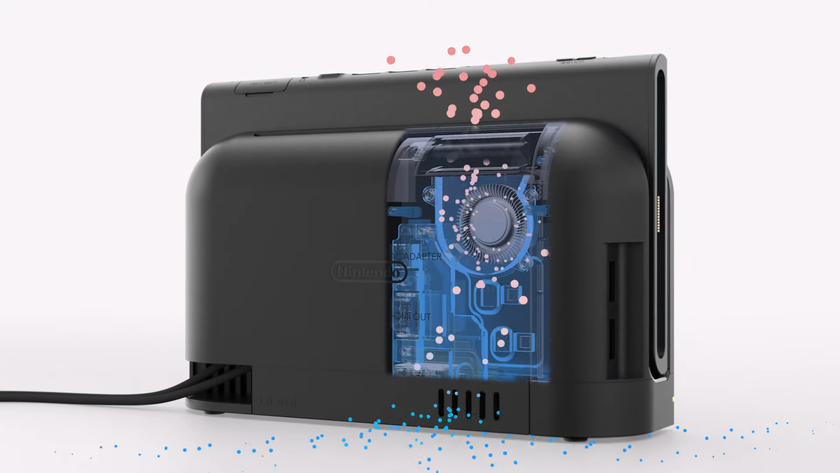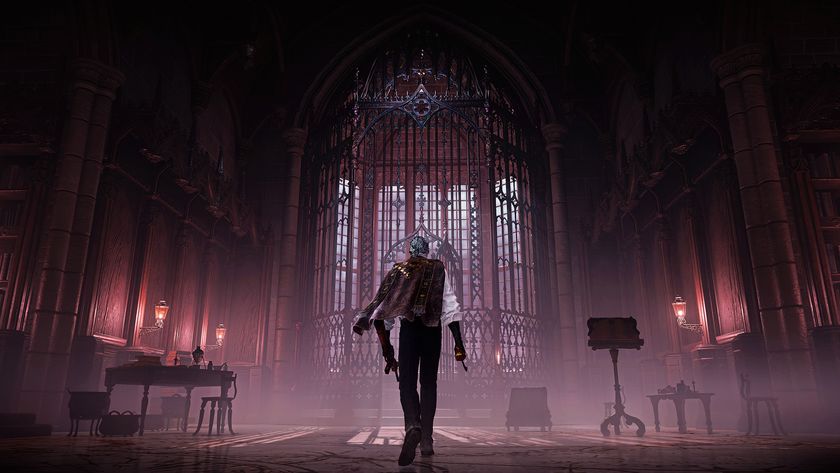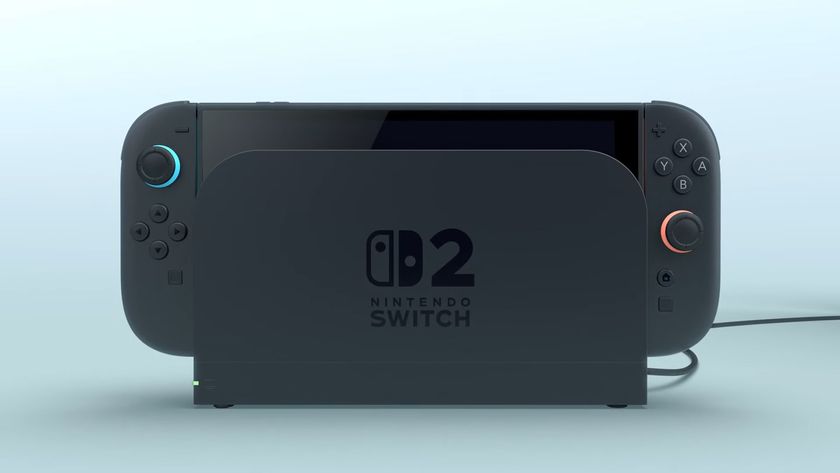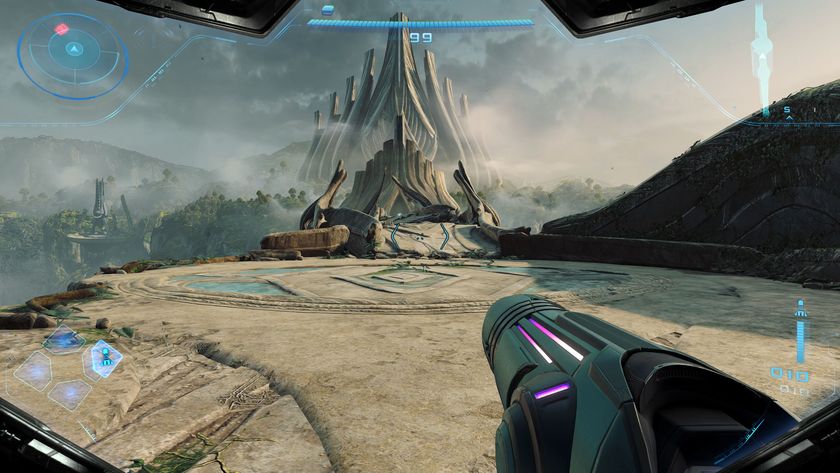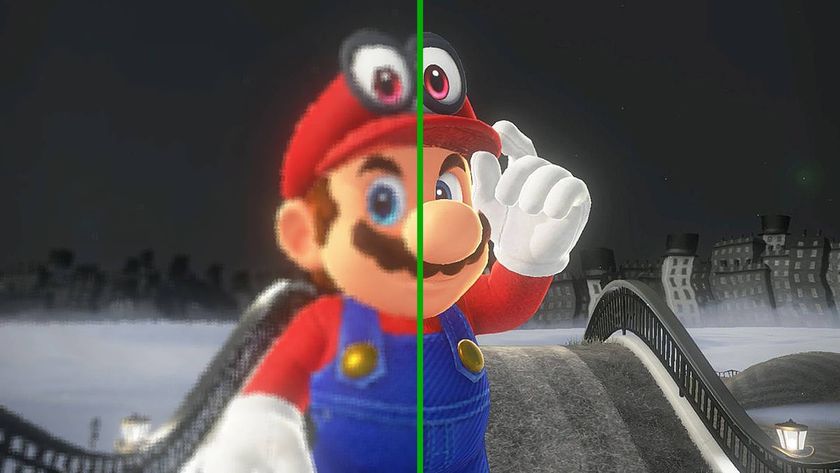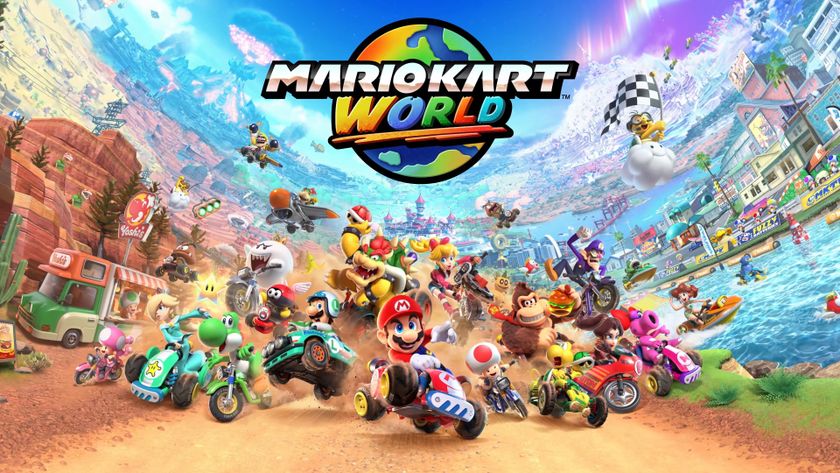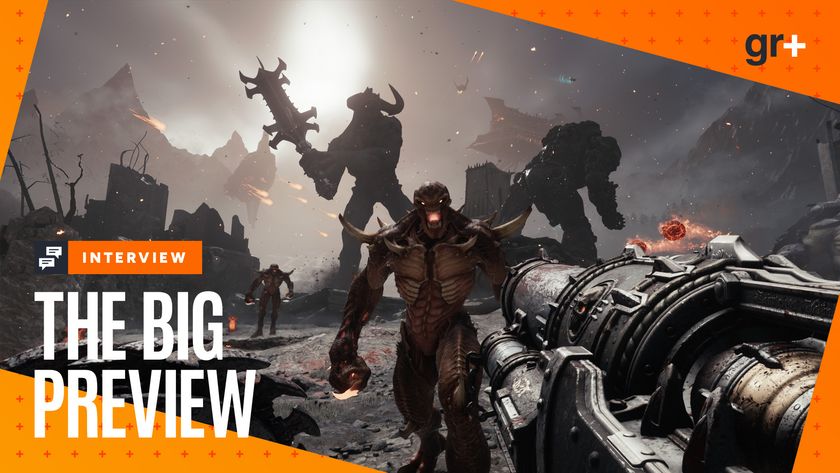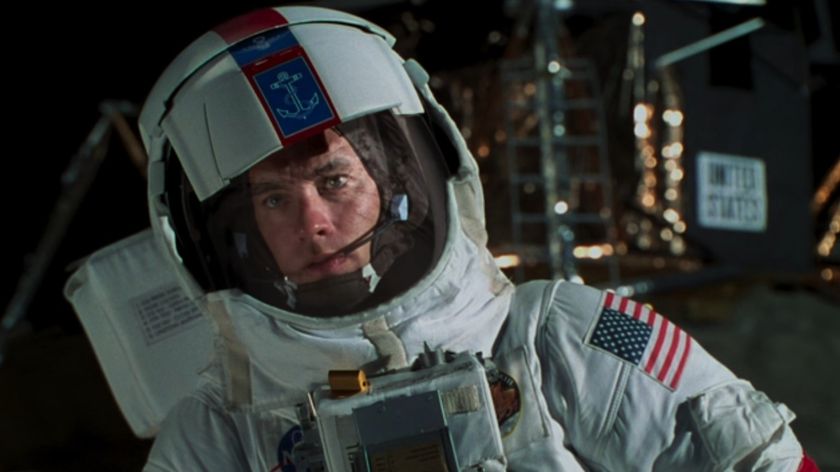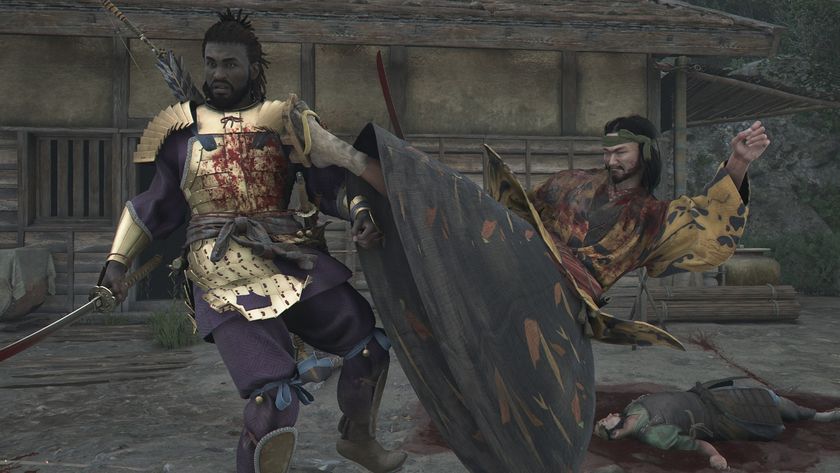The second season of Who spin-off Torchwood is nearly upon us! It starts airing on BBC Two on Wednesday 16 January. The same day, issue 166 of SFX goes on sale, which includes a seven-page Torchwood feature, complete with exclusive on-set photos.
To tide you over until then, we’re putting up a different Torchwood interview every day this week. On Monday it was Kai Owen ; on Tuesday, Gareth David-Lloyd . On Wednesday, exec producer Chris Chibnall . Tomorrow, it’ll be Eve Myles (Gwen). Oh, and if you missed our report on the press screening of the first episode, you can catch it here .
Today it’s the turn of producer Richard Stokes.
Is Torchwood developing into something different for its second season?
“It’s developing, I don’t necessarily think its developing into something different , I think it’s developing from where we left the end of season one. I mean, certainly the things that [Chris Chibnall and I] talked about together and with Russell [T Davies] at the very beginning of this series are that we wanted to take the team on from where we left them right at the end of episode 13. So they’ve gone through this huge internal conflict, this almost dysfunctional family feel of Bilis coming along and opening the Rift and everyone wanting to do that for their own personal reasons and Jack being the character who said, “No, this will end the world’. He was proved right, but obviously it meant that everybody was at conflict with one another. And then at the very end of the series you have that whole sequence where Gwen stays with Jack until he comes back to life, and he then forgives Owen. So actually, in the end, you have this incredibly unified family of people together - which is only then disrupted because the TARDIS arrives and Captain Jack disappears off with the Doctor for a bit.
“So yes, it’s developing, yes it’s evolving - I think any series two would - but I don’t think it’s developed into something different. I think we’re just developing into something that we are very happy with; where a second series should go. It needs to have that sense that it is evolving, but actually there’s a lot of series one that we were very happy with.”
It sounds like it’s a lot more harmonious in terms of the team relationships. I mean, last Owen shot Jack in the head - that’s quite a big fall out!
“Well, the thing is that through series one, from the moment that Owen falls for Diane in ‘Out of Time’ you see this person who’s probably just on the edge of being completely sane, just being slightly pushed over the edge, through what happens in that story and then following on into later episodes. So by the time we come to episode 13 and the relationship between Owen and Jack, it’s basically completely broken down. And it was a very deliberate thing to then get to the end of episode 13 and Captain Jack does the heroic noble thing and says, ‘I forgive you’”.
Are there lessons that you’ve learnt from the first series?
“I don’t know that they’re so much lessons we’ve learned as just strengths we’ve seen in season one that we’ve capitalised on.
"Erm, what have we learnt? To be honest actually, the only thing that we’ve done where we’ve gone, ‘Let’s do that’ or ‘Let’s not do that’ is a bit less swearing... All the publicity we did we were very, very keen in virtually everything we did and everything we said to say, y’know, ‘Ten o’clock on BBC Three, it’s a different show'. And there was a lot more swearing in the scripts that actually ended up on screen... we pulled back on some of the swearing but actually we left quite a lot in there simply because we wanted it to feel much more real to an audience that was watching at ten o’clock on BBC Three...
“Partly because we’re now at nine o’clock on BBC Two there has to be that understanding that we should appeal to a slightly broader audience, and the crossover between a family audience watching Doctor Who at seven and a BBC Two show at nine is probably gonna be slightly broader than a ten o’clock show on BBC Three.”
And you’ve got Freema Agyeman on board as well, which is more likely to bring some of the Doctor Who audience to watch the show.
“Yeah, hopefully! God, she’s fantastic, she’s such a great character, and the three stories that she’s in we worked very hard to make sure that... when you have an ensemble of six characters, to actually give six characters proper screen time across three episodes is actually quite a tricky thing to do in a 50-minute show. I think we’ve done it, and I think what Freema's done in the show has been absolutely fantastic. But yes, there was an awareness that there are now two characters from Doctor Who in Torchwood, not just Captain Jack, so we were a bit careful about the language that we used in those episodes.”
Sign up to the SFX Newsletter
Get sneak previews, exclusive competitions and details of special events each month!
What does adding that character bring to the series?
“Well Martha Jones is one of those great characters that you can kinda put anywhere... What’s interesting is that the writers who were writing for it, when we were first doing the first drafts of those episodes, series three of Who hadn’t yet gone out. So we’d all seen it and we were saying to the writers, ‘This character’s amazing, this actress is fantastic, you’ve got to use her!’. And then we’d get early DVDs to the writers so that they could see what she could do. And as soon as they started to see her and see how she interacted with the Doctor and what she could do then actually her part just became stronger and bigger in the episodes, which is fantastic.
"It just brings a new dynamic. What was great was that she’s not really like any of the other characters in Torchwood... So it just brought in an interesting new character just to subtly change that dynamic, but actually change it in quite a positive way.”
Ianto was pretty much in the background in the first season. Is he going to get more screen time this year?
“Yes. That’s one of the things that we saw when we watched series one in its entirety. Gareth [David-Lloyd] is an extraordinary actor. He does dry humour in a way that very few actors can - he does it very subtly so that it’s not overplayed but it’s genuinely funny, That’s one of these things that’s going back to, ‘Have we got more fun in it?’ - we’ve embraced things that Gareth can do, and written for it. So yes, he is more part of the team.
"When the original idea was conceived by Russell he was very much the kind of butler in the background who looked after everybody and was just quietly in the background sorting everything out, and then we’d bring him to the fore in episodes like ‘Cyberwoman’, where he’s the central character. In this he’s much more a part of the central team and so he’s much less the butler and the person making the coffee. We see him out on location with the characters in the field - as a field operative, if you like - much more in this series. So yes, it’s much more balanced as a team of five rather than a team of four with a butler.”
What’s the balance of stories in terms of story arcs and standalone episodes? Heroes has been a hit, and Doctor Who had more of an ongoing arc last year – has that affected your thinking?
“Heroes itself didn’t affect us. I mean, as a team of people who love the genre we were all looking forward to it coming onto our screens, but none of us had seen it... or at least I think Chris had only seen a couple of episodes once we got into the writing and planning of the episodes. So as fans we were looking at it as a great show, but it didn’t really affect what were doing on Torchwood series two.
“It’s a difficult balance. On any series like this, you always have to have the conversation where we ask how many of the audience are going to be into the series after episode one or two, either by word of mouth or they just missed the first couple or whatever, who you don’t want to exclude because they’ve missed the first couple of episodes. Because however many times you do a ‘Previously On’ there is that sense that you miss out on something. So we have to embrace the fact that not everybody sits down and watches a series of 13 every week it goes out. On the other hand we know that there are fans of this show, like any other, where actually we kinda want to be rewarded if you are the sort of person who watches all 13 episodes. So it’s a constant balance, and it's a very bold move to either go, ‘It's an entire anthology and every story is completely standalone’, or ‘It’s all such an intricate serial arc that you have to watch all 13 episodes’. In season two I genuinely think that we’ve got a very good balance. There are stories that we kick off in episode one that pay off in episode 13. There are stories that build through the middle of the series. There are little tasters that we’re putting out there in the first few episodes that we start to address later on and we wrap up towards the end of the series. So in that way I think we have that good balance, because we also have those episodes like Doctor Who with ‘Family of Blood’ and ‘Blink’ - there are always gonna be those stories where if you just sit down and watch that episode you can watch 50 minutes of great drama and if you don’t watch any other episode then hopefully you come away going, ‘Well, I enjoyed that’. I think we’ve got the balance right. It’s a very difficult thing to judge until the audience have seen it, but we’re aware of it and we think we’ve addressed it.”
Does the move from BBC Three to BBC Two make a difference in terms of the scale of the production? I ask that partly because you have bigger name guest stars this year and so on.
“Erm... no is the short answer!”
The money’s the same?
“The money’s exactly the same, in fact I’m afraid it’s slightly less. No, the money and budget is the same. We extended the schedule very slightly but that was because we were massively under-scheduled last year, so we were filming two episodes at the same time for slightly longer than we wanted to last year. It worked, I mean I don’t think it showed on the screen at all, but it became a logistical nightmare. It’s been a very tough six and a half month shoot but we have had slightly less double-banking this year than last year. So in that way it’s been slightly more organised, slightly better scheduled in terms of the second series.
“In terms of ambition and scale no, it’s just kinda the same.The move from BBC Three to BBC Two isn’t the thing that drives the writers. When Russell and Chris are talking about ideas about what they want to do they simply talk about the ideas they want to do, they then bring us the scripts and we then sit down and say what we can and can’t achieve. And it’s very rare that we simply say, ‘We cannot do that’. Very rare. If anything, we’ll say, ‘Well we can’t quite do that as you’ve written it, but we’ll try and find a way of making something else like it work’, and then the writers go back and write it with that in mind. So that’s what we then produce and make.
“With the guest artists, yeah, we’ve had some really good names in actually and that’s just a balancing act for me as a producer to go, ‘Well if we’re paying that much for that guest artist that means that we have to have a few less supporting artists in the background’ or something. It’s that constant balancing act between every single department to make the budget work.”
You’ve made a few changes to the main Hub set - anything major?
“Quite major for us - it probably won’t be quite so big for the audience. It's an extraordinary set, it looks absolutely stunning, but it is a bit of a nightmare to shoot on, because basically what you’ve got is this big four-walled set with a river that runs through the middle of it! Which means that once you’ve got four or five actors in there and a camera crew in there there aren’t actually that many spaces you can move the camera to. So we’ve extended the platform that goes out in front of Tosh and Owen's desks, and we’ve increased the platform that goes across the middle of the river. It just means we have much more access to what is a great set. We’ve opened up Jack’s office, which looks fantastic. They’re quite subtle changes on screen, and it might take a few episodes for even really keen viewers to spot the differences, but it’s made a big difference to us in terms of filming. And we’ve built a couple of new sets. We’ve got a new boardroom, and there's a whole corridor section that joins the boardroom to the vaults. The big team meeting room scenes are now in the new boardroom, which is a fab set - it looks great!”
Interviewer: Ian Berriman
Photography: Rob Scott
SFX Magazine is the world's number one sci-fi, fantasy, and horror magazine published by Future PLC. Established in 1995, SFX Magazine prides itself on writing for its fans, welcoming geeks, collectors, and aficionados into its readership for over 25 years. Covering films, TV shows, books, comics, games, merch, and more, SFX Magazine is published every month. If you love it, chances are we do too and you'll find it in SFX.
